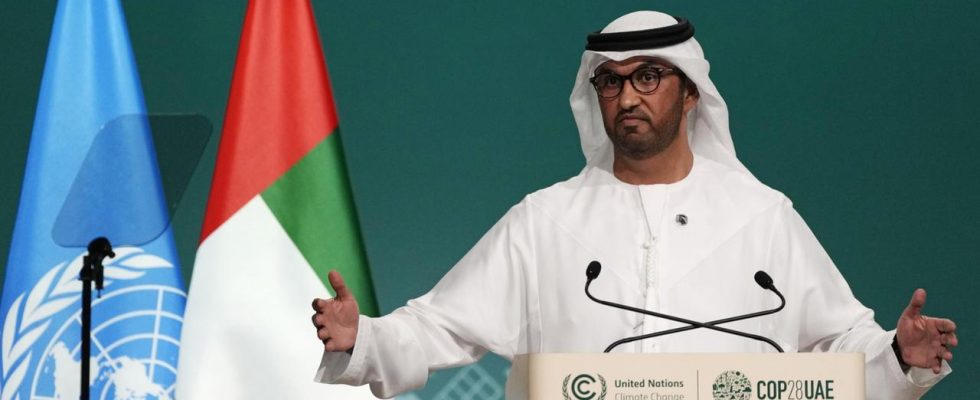For years, countries in the global south have been demanding compensation for climate damage. Now the disaster fund is actually being set up. At COP28 in Dubai, Germany and the host declared that they would each deposit $100 million.
At the start of the World Climate Conference, Germany and the United Arab Emirates surprisingly pledged 200 million US dollars (the equivalent of around 183 million euros) to compensate for climate damage in particularly vulnerable countries. This was said by the President of COP28, Sultan Ahmed al-Jaber, and Federal Development Minister Svenja Schulze before the plenary session in Dubai.
Each country will receive $100 million. This is the first time that money will flow into the fund approved last year at the UN climate conference in Egypt. This means that he is now able to work. Great Britain, the USA and Japan also made financial commitments. The United States gives $17.5 million and Great Britain $60 million. The pot of money is intended to provide aid after storms or long droughts caused by global warming.
Al-Jaber describes decision as “historic”
According to a preliminary compromise proposal, all states should only pay on a voluntary basis, and a specific amount has not yet been agreed. With the rapid agreement on the disaster fund, the host emirates expect to have paved the way for the targeted reduction in global CO2 emissions.
Host Sultan Al-Jaber described it as “historic” and “phenomenal” that this decision was made right at the start of the conference. SPD politician Schulze, who was connected via video to Dubai, also spoke of “a groundbreaking decision for the most vulnerable.” Both called on other countries to also make commitments.
Countries in the global south had repeatedly called for the disaster fund. Western countries expect emerging countries to participate in the fund. The federal government emphasized that this applies not only to China, but to other countries. Above all, this meant Arab Gulf states whose wealth is based on the sale of fossil fuels.
“Strategically important move”
As a result of this rush, the approximately 160 other heads of state and government who will speak at the climate conference in the coming days are now under pressure to act. Sabine Minninger, climate expert at Bread for the World, called the announcement right at the start of the conference a “strategically important move.” The host and Germany also showed emerging and oil-exporting developing countries: “They no longer have an excuse to avoid making a financial announcement.”
In his opening speech, COP28 President A-Jaber called for cooperation. States and corporations in the oil, gas and coal industries must work together for global climate goals, he said to thousands of delegates from all over the world. “I ask you to work together.” Al-Jaber emphasized that progress has been made since the groundbreaking Paris climate agreement. But the efforts were not enough.
Slight confidence at the Federal Government
Before the summit began, there was criticism of the host – the United Arab Emirates – particularly from environmentalists. Because they are one of the most important oil exporters in the world. In addition, COP President Al-Jaber is also the head of the state oil company Adnoc. The Special Representative for International Climate Policy at the Foreign Office, Jennifer Morgan, was, however, “cautiously optimistic”. She said in Dubai that she felt a great determination to focus on the climate crisis here.
The real focus of the two-week UN meeting with delegates from almost 200 countries is the first global agreement on a gradual phase-out of the use of fossil fuels such as coal, oil and gas, which are blamed for the increase in the greenhouse gas carbon dioxide and thus global warming. This is intended to implement the Paris climate summit of 2015, at which it was agreed to limit global warming to well below two degrees compared to the pre-industrial era.
A sticking point in the negotiations is bridging the gap between industrialized and developing countries. The latter are insisting on an agreement to replace fossil fuels with clean energy. In addition, many non-industrially developed countries are reluctant to move away from fossil fuels, which they believe are necessary for the growth of their economies.

